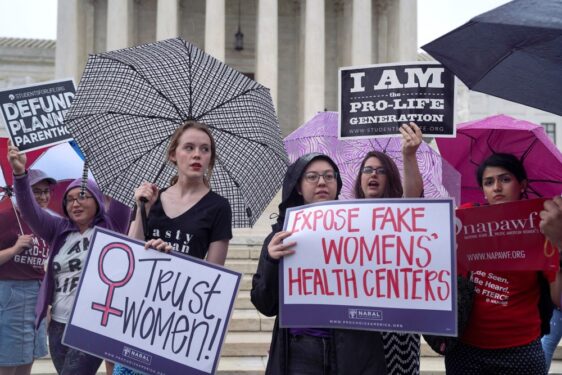
WASHINGTON — An Indiana abortion ban faced a new hurdle last week when an appeals court said the state’s near-total ban on abortion could infringe on the religious freedom of some Indiana residents.
On April 4, the Indiana Court of Appeals upheld a lower court’s injunction on the state’s abortion ban, issued after an Indiana group sued the state for its near-total abortion ban, saying it violates a state law that protects citizens’ religious freedom.
The three-judge panel’s ruling agreed with a lower court that the plaintiffs’ religious objection to the ban should exempt them from it. The court’s decision is likely to be challenged in the state Supreme Court.
Indiana’s abortion ban went into effect in September 2022 and was upheld last August by the Indiana Supreme Court. The ban prohibits abortions at any point during pregnancy except if the woman’s life or health is seriously at risk. Abortion would be permitted before 22 weeks of pregnancy if a “lethal fetal anomaly” is detected, or until 12 weeks of pregnancy in cases of rape or incest.
Four Indiana residents and the group Hoosier Jews for Choice brought a religious challenge against the ban before the state in September 2022, saying the ban violates a state religious-freedom law put in place by Republican lawmakers in 2015.
The law is the Religious Freedom Restoration Act, or RFRA, which enables state citizens to sue the state if they feel the government has infringed on their religious beliefs.
In the case of the abortion ban, the lawsuit says that under Jewish law, “a fetus attains the status of a living person only at birth,” and that abortions “may occur, and should occur as a religious matter, under circumstances not allowed” under the state’s abortion ban.
It also said other religious groups — Muslims, Unitarian Universalists, and Episcopalians — similarly hold religious beliefs about abortion that could be impacted by the state’s abortion ban.
Last December, a county judge sided with the residents who were represented by the American Civil Liberties Union of Indiana, and the state of Indiana appealed this decision.
A concurring opinion written by Judge L. Mark Bailey of the appeals court said the abortion ban put one form of faith over others by siding with a specific definition of when life begins.
“In accordance with abundant religious liberty and the recognition of a pluralistic society, our Constitution further provides: ‘No preference shall be given, by law, to any creed, religious society, or mode of worship,’” Bailey wrote. “Yet in this post-Dobbs world, our Legislature has done just that — preferred one creed over another.”
The ruling does not strike down the abortion ban in the state but allows the lawsuit against the ban to move forward, seeking a religious exemption to it.
Missouri and Kentucky are facing similar challenges to state abortion laws, and abortion laws are paused in Iowa, Utah, and Wyoming due to legal challenges.
Mike Fichter, president of Indiana Right to Life, said in a statement that the Indiana appellate court’s decision was “wrongly decided.”
“We are confident Indiana will prevail against any claims that abortion — the intentional ending of an innocent and helpless human life — is a religious freedom,” he added.
